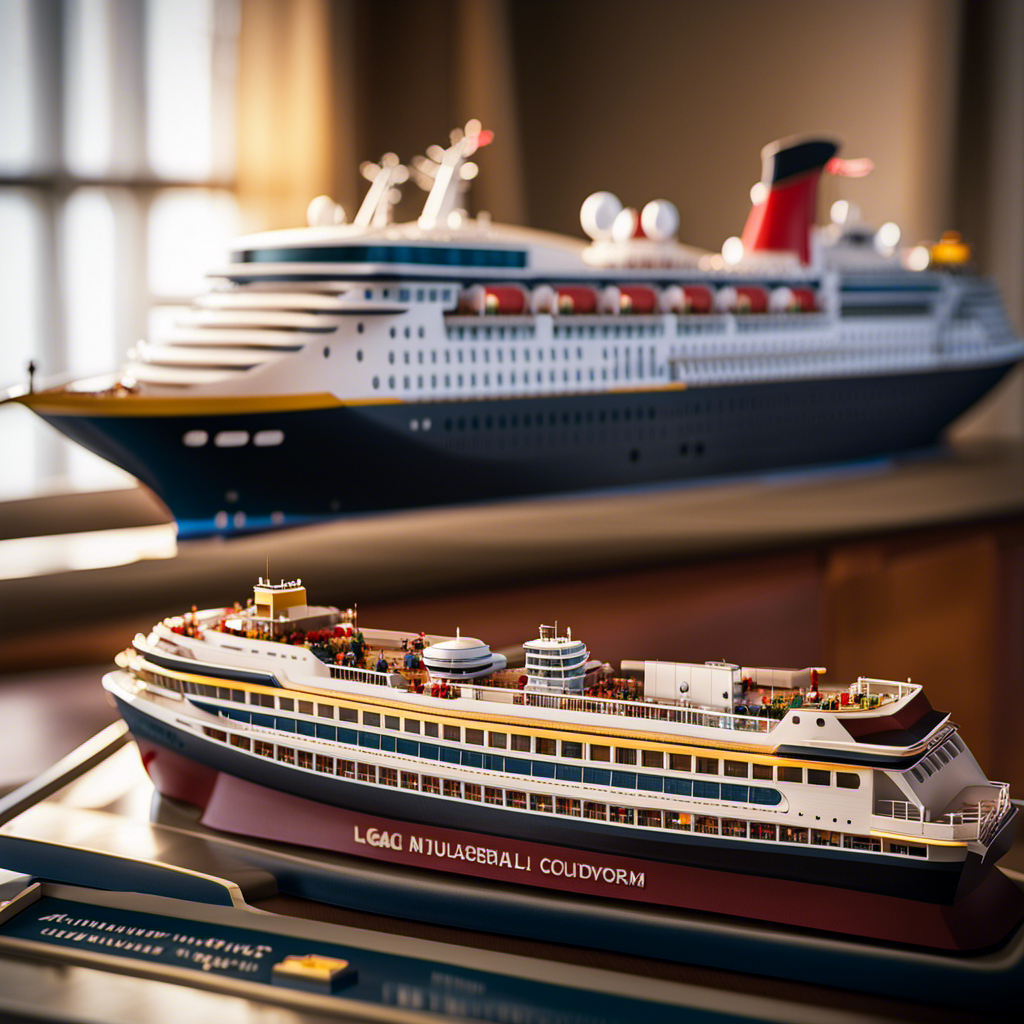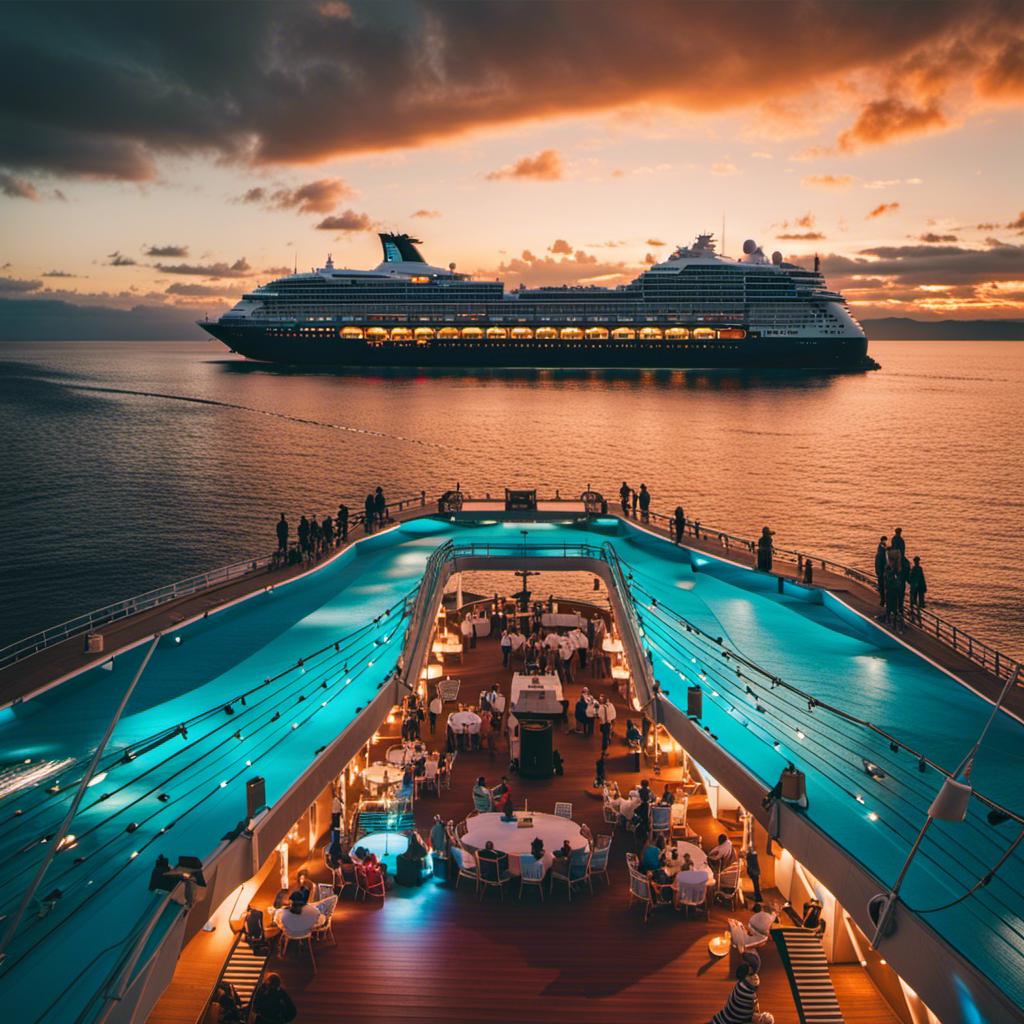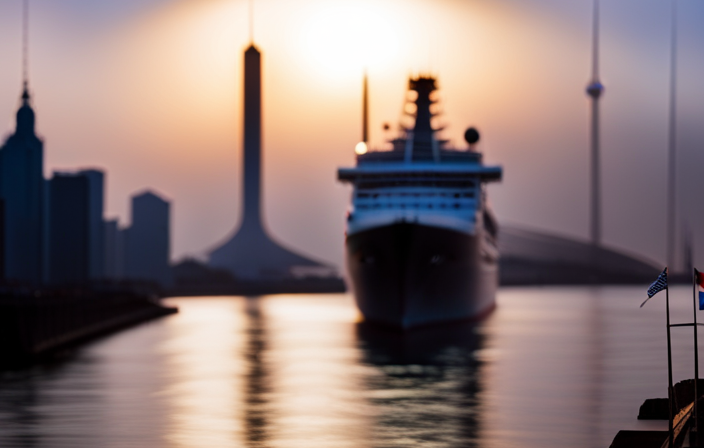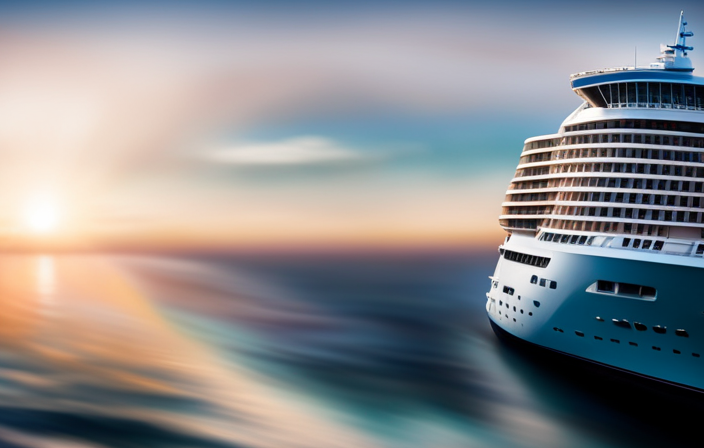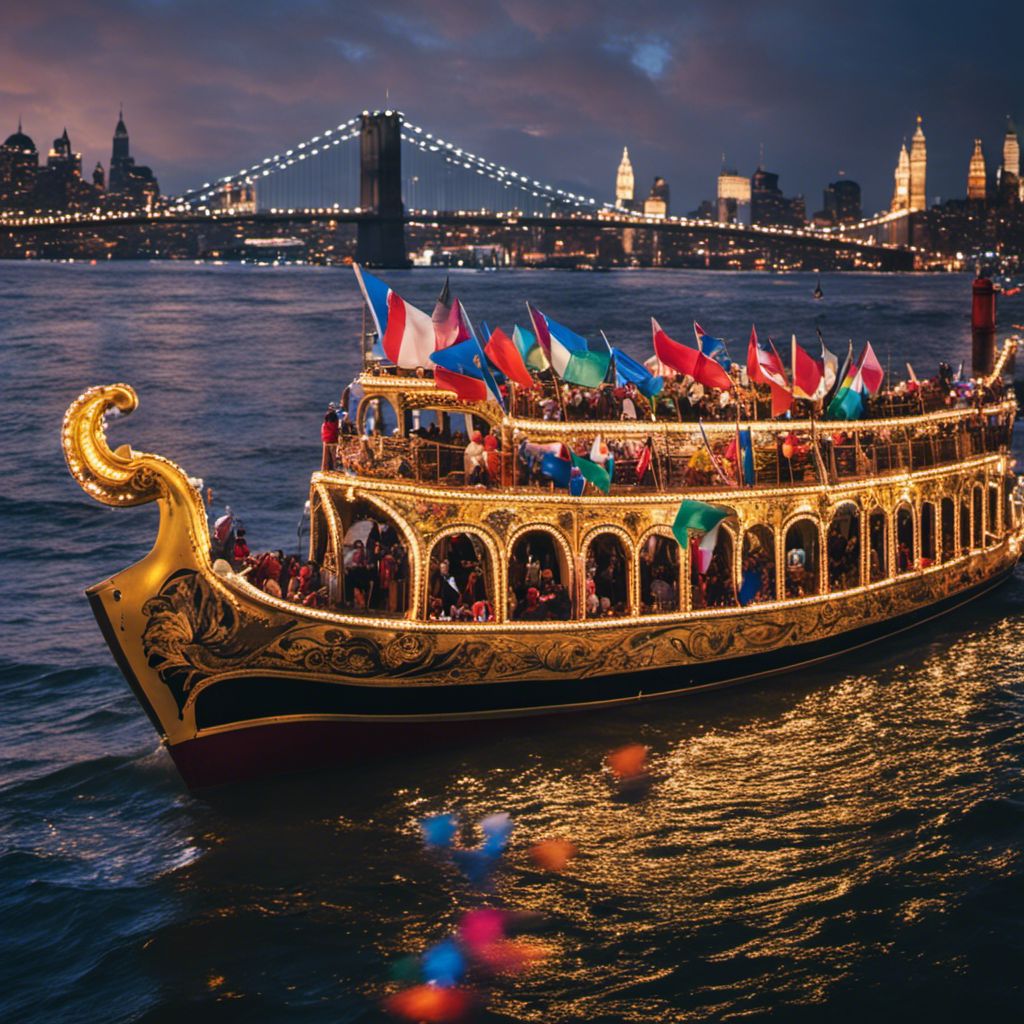Here’s something you should know: the guidelines set by the CDC for cruise operations are expected to remain in place for an extended period, representing a considerable legal battle. Although a U.S. District Judge had placed an injunction on the Conditional Sailing Order, this move was paused due to the involvement of the U.S. Court of Appeals for the 11th Circuit.
The tensions between cruise lines and the CDC have been heating up, with Florida and Norwegian Cruise Line Holdings filing lawsuits. Despite the ongoing uncertainties, the industry is striving to resume operations safely under the CDC’s guidelines.
Key Takeaways
- The Appeals Court granted a stay, keeping the CDC Cruise Rules in place in Florida, indicating that the Conditional Sailing Order will continue to be in effect.
- The legal battles between the CDC and cruise lines, as well as the conflicts between cruise lines and Florida’s laws, have created uncertainty and challenges for the cruise industry.
- Vaccinations and adherence to CDC protocols have been effective in limiting COVID cases on cruise ships, leading the CDC to believe that cruises can safely resume with the rules in place.
- Norwegian Cruise Line Holdings (NCLH) has filed a lawsuit against Florida’s law on vaccination proof, as the company wants to sail with 100% vaccinated passengers and crew.
Appeals Court Grants Stay, Keeping CDC Cruise Rules in Place in Florida
I’m relieved to hear that the Appeals Court has granted a stay, ensuring that the CDC cruise rules will remain in place in Florida.
This decision has significant implications for the cruise industry and the ongoing legal battles surrounding the CDC’s Conditional Sailing Order (CSO).
The industry has been grappling with the impact of these rules, facing challenges in complying with the guidelines set forth by the CDC. The tensions between cruise lines and the CDC over what some perceive as burdensome regulations have created uncertainty for the industry.
Despite the challenges, cruise lines have been adjusting their rules to comply with Florida law, while also striving to resume operations safely under the CSO guidelines.
The court’s decision to maintain the CDC rules in Florida will continue to shape the future of the cruise industry and its recovery from the pandemic.
U.S. District Judge Steven Merryday Grants Injunction Against the Conditional Sailing Order (Cso)
U.S. District Judge Steven Merryday’s injunction against the Conditional Sailing Order has caused significant disruption in the cruise industry. This legal ruling has far-reaching implications for both the industry and the ongoing battle between the cruise lines and the CDC.
The decision to grant the injunction has created uncertainty and challenges for cruise lines as they navigate the complex landscape of health and safety regulations. The industry now faces the task of adjusting their rules to comply with both the CDC guidelines and the Florida law.
This clash between legal requirements has put cruise lines, like Norwegian Cruise Line, in a difficult position, as they strive to ensure the health and safety of their passengers and crew while also adhering to state regulations.
The legal implications of Judge Merryday’s ruling have left the industry in a state of limbo, as they strive to resume operations safely under the Conditional Sailing Order guidelines.
Judge Gives CDC an Opportunity to Offer New Set of Narrower Rules
Given the recent ruling, the judge’s decision to allow the CDC to present a new set of narrower rules has introduced a potential opportunity for the cruise industry to navigate the complex landscape of health and safety regulations more effectively.
This development comes after the U.S. District Judge Steven Merryday granted an injunction against the Conditional Sailing Order (CSO), which has caused tensions between cruise lines and the CDC over burdensome rules.
Now, with the opportunity for the CDC to propose new rules, cruise lines may be able to adjust their protocols to comply with the narrower guidelines. This could help alleviate some of the challenges they have faced in following the CSO guidelines and the Florida law on vaccination proof.
The industry is eager to resume operations safely, and the cruise lines’ compliance with these narrower rules could be a step in the right direction.
U.S. Court of Appeals for the 11th Circuit Agrees to Stay the Overturning of the Order
Agreeing to stay the overturning of the order, the U.S. Court of Appeals for the 11th Circuit has provided a temporary resolution to the ongoing legal dispute surrounding the cruise industry’s compliance with health and safety regulations. This decision has significant legal implications for both the cruise lines and the CDC. It maintains the status quo, keeping the Conditional Sailing Order (CSO) in place, which outlines the guidelines for the safe resumption of cruises. The industry has been facing numerous challenges in adhering to these guidelines, as they involve extensive testing, vaccinations, and other protocols. The court’s ruling ensures that the industry will continue to operate under these rules, despite the industry’s pushback and Florida’s lawsuit against the CSO. The legal battles and industry challenges continue as the cruise lines strive to resume operations safely amid the ongoing pandemic.
| Legal Implications | Industry Challenges |
|---|---|
| Maintains CSO guidelines | Compliance with testing and vaccination protocols |
| Upholds CDC’s authority | Balancing health and safety regulations with operational requirements |
| Sets precedent for future rulings | Adapting to changing guidelines and regulations |
Tensions Rise Between Cruise Lines and the CDC Over Burdensome Rules
I’m frustrated by the escalating tensions between cruise lines and the CDC over what I perceive as overly burdensome regulations.
The CDC rules have had a significant impact on the cruise lines, making it challenging for them to comply with both the CDC guidelines and Florida law.
The ongoing legal battles have only added to the industry’s uncertainty. Cruise lines have been forced to adjust their rules to comply with Florida law, while also trying to meet the health and safety guidelines set by the CDC.
Norwegian Cruise Line Holdings (NCLH) has even filed a lawsuit against Florida’s law on vaccination proof. The situation has created a dilemma for cruise lines like Norwegian, who want to sail with 100% vaccinated passengers and crew, but must also navigate the CDC’s regulations.
It is clear that the cruise industry is facing numerous challenges in their efforts to resume operations safely under the CDC guidelines and Florida law.
Florida Files Suit Against the Conditional Sailing Order
Florida’s lawsuit against the Conditional Sailing Order further complicates the already uncertain path to resuming cruise operations. This legal battle has significant implications for the cruise industry and its ability to navigate the current landscape. It highlights the conflict between the state of Florida and the federal government’s authority over cruise ship regulations.
The lawsuit specifically addresses the Conditional Sailing Order, which outlines the requirements for cruise lines to resume operations. Florida’s challenge to this order raises questions about the state’s autonomy in implementing its own rules and regulations.
Additionally, the conflict between Norwegian Cruise Line and Florida’s law on vaccination proof adds another layer of complexity. The cruise line seeks to sail with 100% vaccinated passengers and crew, but Florida’s law prohibits businesses from requiring proof of vaccination. This conflict has industry-wide consequences and potential resolutions must be explored to find a balance between public health concerns and individual rights.
Overall, the legal implications and industry impact of Florida’s lawsuit against the Conditional Sailing Order, along with the conflict between Norwegian Cruise Line and Florida’s law on vaccination proof, highlight the challenges and uncertainties faced by the cruise industry as it strives to resume operations safely and efficiently.
Norwegian Cruise Line Holdings (Nclh) Files Suit Against Florida’s Law on Vaccination Proof
Filing a suit against Florida’s law on vaccination proof, Norwegian Cruise Line Holdings (NCLH) challenges the current restrictions on requiring proof of vaccination for cruise passengers and crew. This legal action has significant legal implications for the cruise industry and highlights the ongoing battle between government regulations and the industry’s desire to resume operations.
NCLH’s lawsuit raises questions about the balance between health and safety guidelines and individual rights. It also underscores the industry’s response to the current situation, as cruise lines like NCLH navigate the complexities of complying with both health protocols and state laws.
The outcome of this lawsuit will not only impact NCLH but also set a precedent for other cruise lines and their ability to enforce vaccination requirements. The industry will be closely watching the legal proceedings and their potential implications for the future of cruising.
Vaccines and CDC Protocols Limit Cases on Cruise Ships
In my previous subtopic, I discussed how Norwegian Cruise Line Holdings (NCLH) filed a lawsuit against Florida’s law on vaccination proof. Now, let’s shift our focus to the effectiveness of vaccines and the compliance with CDC protocols in limiting cases on cruise ships.
-
Vaccine effectiveness:
- Vaccines have played a crucial role in reducing COVID-19 cases on cruise ships.
- Fully vaccinated passengers and crew members are less likely to contract and spread the virus.
- Vaccines have shown high efficacy in preventing severe illness and hospitalization.
-
CDC protocols compliance:
- Cruise lines have been adhering to the CDC’s guidelines and protocols to ensure the safety of passengers and crew.
- These protocols include testing, screening, and enhanced sanitation measures.
- Compliance with these protocols has helped in managing and mitigating the risk of COVID-19 outbreaks on cruise ships.
Frequently Asked Questions
How Have the Legal Battles Between the Cruise Lines and the CDC Affected the Cruise Industry?
Legal battles between the cruise lines and the CDC have had significant legal implications and financial consequences for the cruise industry. These ongoing disputes have created uncertainty and challenges for cruise lines, impacting their ability to resume operations.
What Are the Main Challenges Faced by Cruise Lines in Following the Cdc’s Conditional Sailing Order Guidelines?
Following the CDC’s guidelines presents challenges for cruise lines, impacting the industry. Legal battles add uncertainty. Adapting to the Conditional Sailing Order is difficult, but necessary for the safe resumption of operations.
How Has the Ongoing Legal Saga Impacted the Timeline for the Return to Cruising?
The ongoing legal saga has impacted the timeline for the return to cruising. The cruise industry faces challenges due to the legal battles, creating uncertainty and prolonging the process.
What Specific Lawsuits Have Been Filed by Florida and Norwegian Cruise Line Holdings (Nclh)?
The Florida lawsuits and the NCLH lawsuits are legal battles that have been filed in relation to the cruise industry. These lawsuits highlight the challenges and conflicts faced by cruise lines in complying with both health and safety guidelines and Florida law.
Why Does Norwegian Cruise Line Want to Sail With 100% Vaccinated Passengers and Crew?
I believe Norwegian Cruise Line wants to sail with 100% vaccinated passengers and crew to ensure the safety of everyone on board and comply with the CDC’s conditional sailing order challenges.

